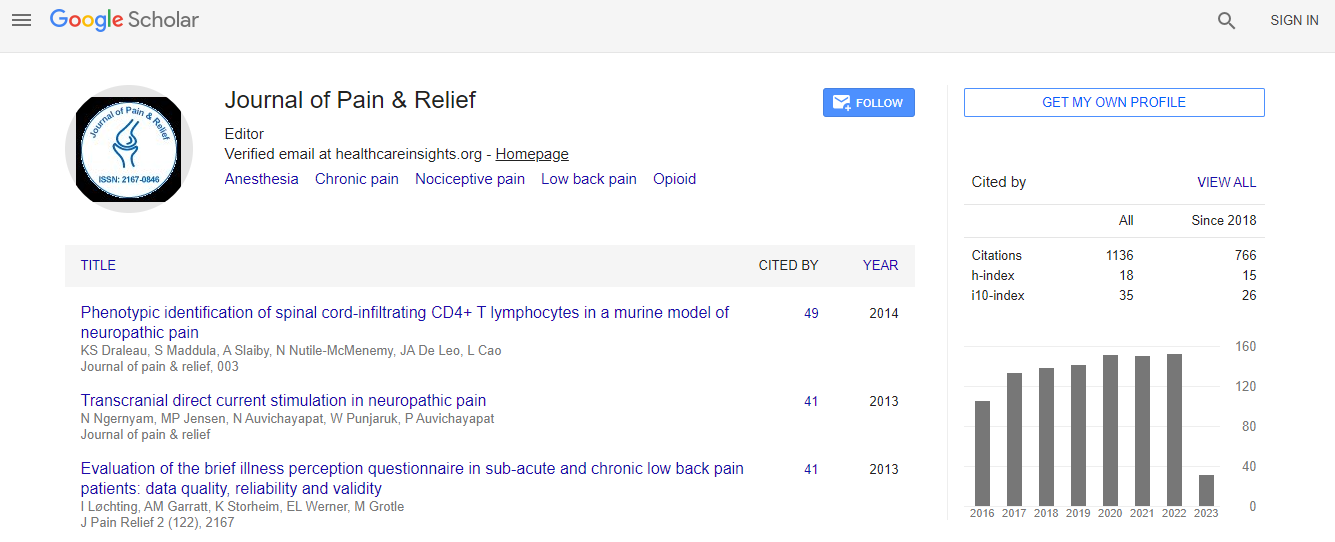Research Article
The Decrease of Pain Severity among Patients with Isolated Closed Fractures of Extremity and Clavicle in Emergency Department
| Dewo P*, Magetsari R, Hidayat L, Ismoyo K and Lanodiyu Z | |
| Department of Orthopaedics and Traumatology, Sardjito Hospital/UniversitasGadjah Mada, Jogjakarta, Indonesia | |
| Corresponding Author : | Dewo P Department of Orthopaedics and Traumatology, Sardjito Hospital Kesehatan street no 1 Sekip Yogyakarta, Indonesia Tel: +62 81 22 69 36 89 Fax: +62 274 55 31 43 E-mail: dewo777@yahoo.com |
| Received June 07, 2014; Accepted August 01, 2014; Published August 03, 2014 | |
| Citation: Dewo P, Magetsari R, Hidayat L, Ismoyo K, Lanodiyu Z (2014) The Decrease of Pain Severity among Patients with Isolated Closed Fractures of Extremity and Clavicle in Emergency Department. J Pain Relief 3: 153. doi: 10.4172/2167-0846.1000153 | |
| Copyright: © 2014. Dewo P, et al. This is an open-access article distributed under the terms of the Creative Commons Attribution License, which permits unrestricted use, distribution, and reproduction in any medium, provided the original author and source are credited. | |
Abstract
Introduction: Pain as one of the most common reason why people visit emergency room after fracture and soft tissue injury due to trauma. Thus, it should be assessed and managed well, particularly on its acute presentation. Adequate analgesia and early reduction should be done to decrease the severity of pain and minimize soft tissue complications of the injury for displaced fractures. The aim of this study was to assess whether the combination of reduction, immobilization, and injection of ketorolac are sufficient enough to manage pain in the acute setting of
closed fractures in the emergency room. Methods: This was a prospective cohort study conducted on a consecutive series of patients involving patients in Sardjito hospital from August to September 2012 who had isolated closed fracture. After taking the consent from the
subjects, the pain was assessed using VAS and divided into 3 categories, mild pain (0-3), moderate pain (4-6), and severe pain (7-10). Standard protocol of fracture management was applied and non-steroidal anti-inflammatory drug was given to the subjects. VAS score was reevaluated 24 hours after intervention. Data was analyzed using Chisquare test. Results: There were 61 eligible subjects with isolated closed fracture. Pain severity in upper extremity, lower extremity injury, and clavicle injury for both before and after interventions were given was not significantly differs
(p>0.05). This study showed that the pain severity had significantly decreased after the interventions were given (p<0.05). Conclusion: The combination of early reduction, immobilization, and ketorolac injection were sufficient enough for acute management of isolated closed fracture cases.

 Spanish
Spanish  Chinese
Chinese  Russian
Russian  German
German  French
French  Japanese
Japanese  Portuguese
Portuguese  Hindi
Hindi 
